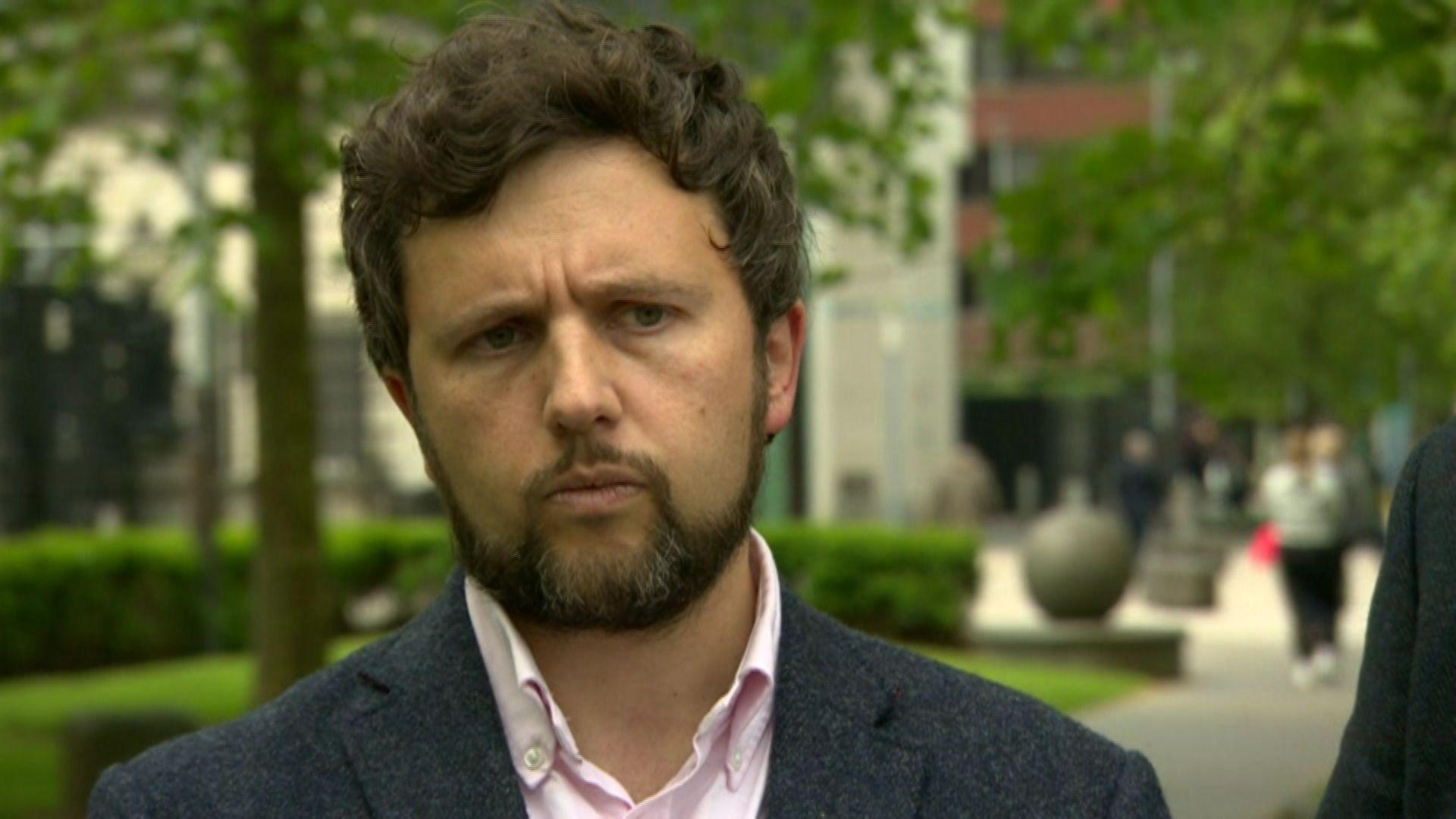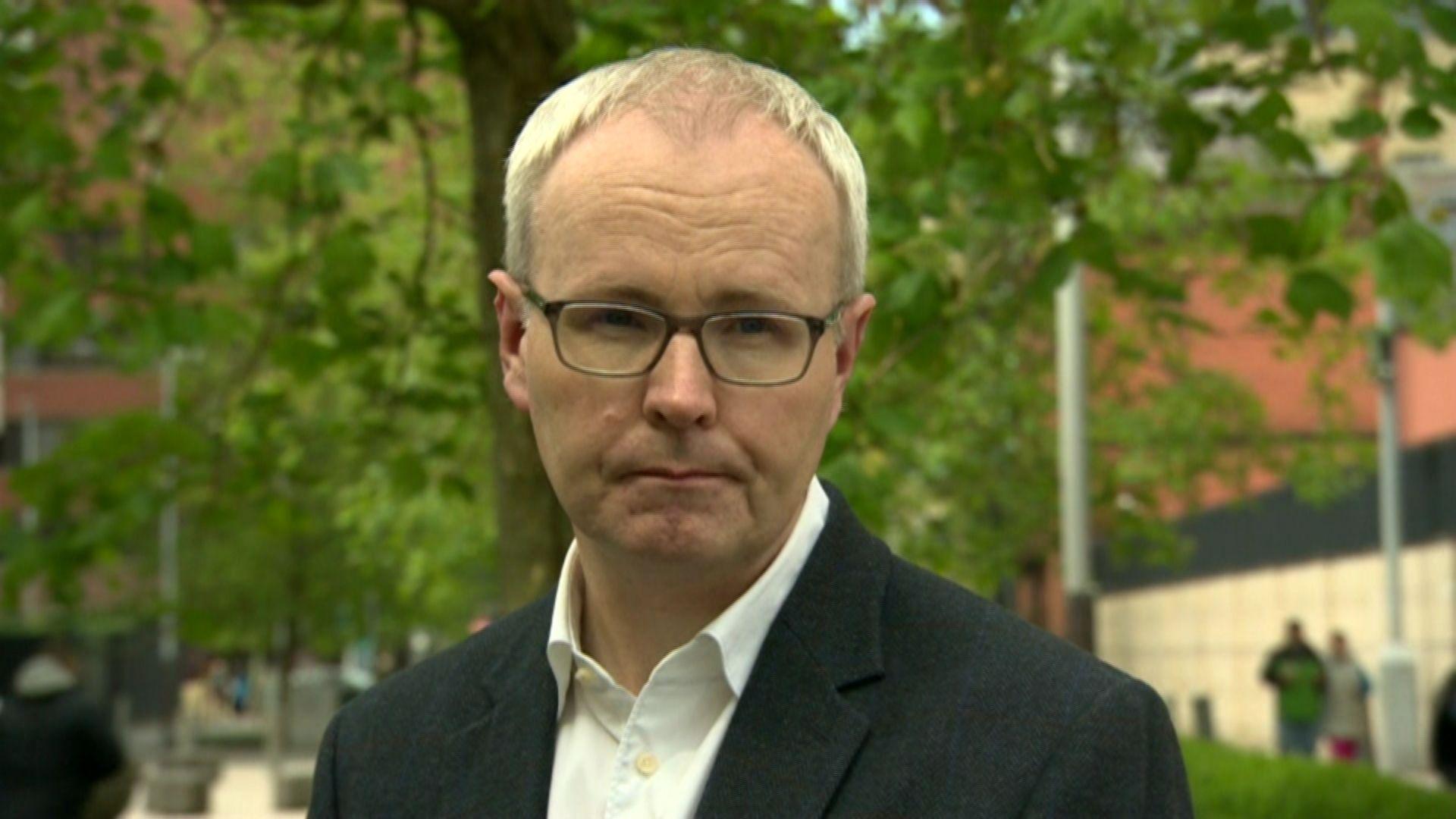Stormont rushed sex offence law, says journalist

The law came into effect in Northern Ireland in 2023
- Published
A Northern Ireland law granting anonymity to people suspected of sexual offences until they are charged has been branded "a major blunder that wasn't spotted by the assembly".
Sam McBride, Northern Ireland editor of the Belfast Telegraph, said the law was "rushed through".
It comes after a judge ruled the legislation was not compatible with human rights or press freedom.
Media organisations had joined forces in an attempt to have sections of it declared legally invalid.
The law, called the Justice (Sexual Offences and Trafficking Victims) Act (Northern Ireland) 2022, came into effect in 2023.
It granted anonymity for life - and for 25 years after death - to suspects who were not charged with any sexual offences.
However, it was argued during the judicial review that victims of sexual assault could be jailed if they publicly named their suspected abusers.
The court also heard the law meant that suspects could not publicly deny allegations.
On Friday, Mr Justice Humphreys told Belfast High Court that the relevant sections were "not law" and failed to strike a fair balance between suspects' rights to privacy and press freedom.
Media joined together for legal challenge
He told the court that the legislation was not in accordance with law and that the Northern Ireland Assembly had acted outside "the margin of appreciation afforded to it in this field".
The judge also said the law imposed a "chilling effect" on public interest journalism.
Passed by assembly members following a review carried out by retired judge Sir John Gillen, the act sets Northern Ireland apart from the rest of the United Kingdom and the Republic of Ireland.
Although Sir John recommended a prohibition on identifying those under investigation for sexual crimes prior to being charged, his report did not suggest extending anonymity beyond their deaths.
Media organisations involved in the bid to have sections of the act declared legally invalid included the BBC, The Irish News, Mediahuis - which publishes the Belfast Telegraph - and The Times' publisher News Group Newspapers.

Sam McBride said the legislation was rushed through the Assembly
Mr McBride said there "was a lesson here for the assembly, for MLAs".
"Do your job. Scrutinise legislation," he said.
“They did not scrutinise to see if there would be unintended consequences or problems with it."
Mr McBride added that the legislation was "put through the assembly in the dying days before it collapsed" and "there was a sense that passing law was a good thing in and of itself".
He said that Justice Minister Naomi Long told the assembly the law was implementing what the Gillen Review recommended but “quite simply, it wasn’t”.
A Department of Justice spokesperson said the department noted the judgement and is "carefully considering the detail".

Aeneas Bonner said the judge made a "clear statement" in the case
Aeneas Bonner, assistant editor of the Irish News, said he hoped the Department of Justice would not appeal the decision, given the “clear judgement”.
He added: “It’s no small thing for media organisations who don’t have enormous amounts of money to take on the government effectively and to bring a case at significant costs.
“There is a very high bar to reach to overturn laws so for the judge to make such a clear statement in this case shows how important public interest is for the media and for society in general.”
Ruling has 'given everyone some hope'
Samantha Brown, who was abused by Jimmy Savile, said she had been “utterly shocked” by the law because investigations into sexual offences can take “years” and it is often investigative reporters that do the “groundwork”.
She felt the law had protected the accused and was "far more protection for them than there was for anybody who had been through the situation, like myself”.
She welcomed that the judge had “recognised that and stopped it”.
“This today, I think has given everyone some hope.”
Ruling on the challenge, Mr Justice Humphreys stressed: “The imposition of a criminal sanction on public interest journalism, and the chilling effect occasioned thereby, represents an interference with an Article 10 right which requires the most anxious scrutiny.”
Declaring that the relevant sections of the act are unlawful, he added: “They are outside the legislative competence of the Northern Ireland Assembly as they are incompatible with the Article 10 ECHR (European Convention on Human Rights) rights of the applicants.”
In concluding comments, Mr Justice Humphreys stated: “Public interest journalism serves a vital role in any democratic society.
“There was no debate around the issue of the public interest, relevant to the anonymity of suspects, nor any consideration of the need for a fair balance of rights.”